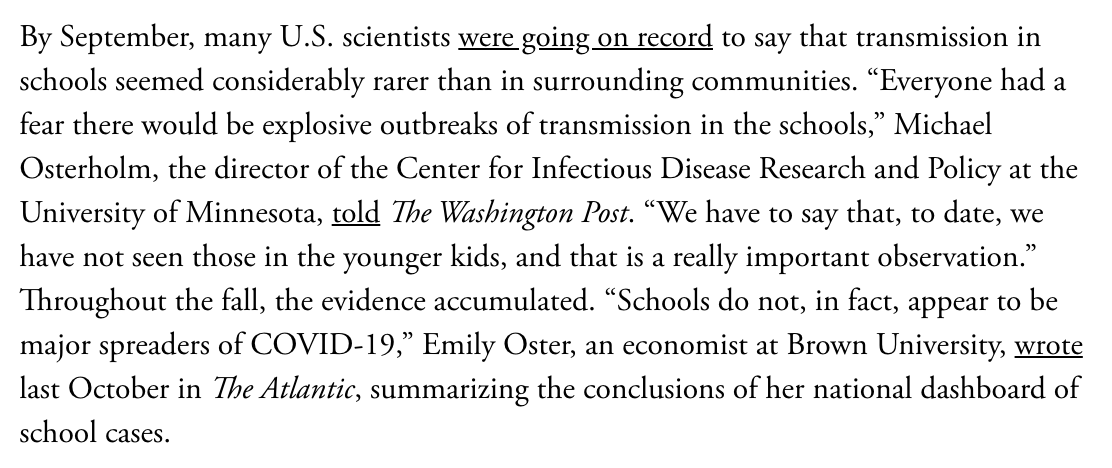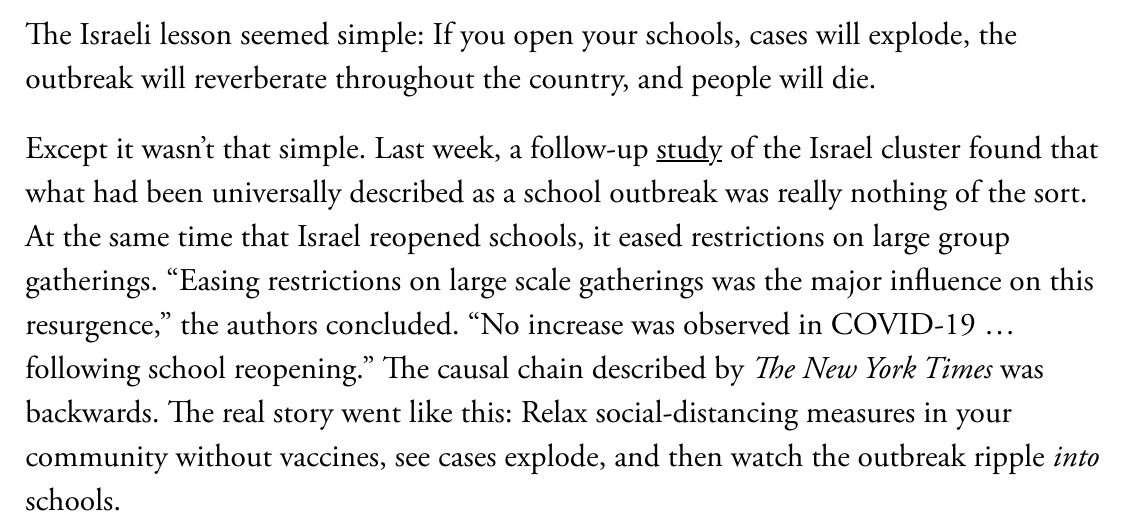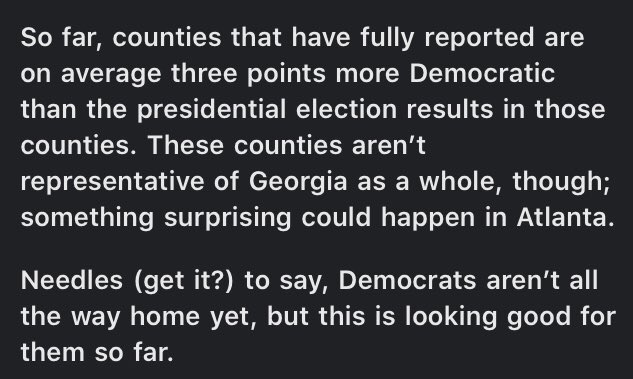
This week, the CDC finally called for children to return to classrooms as soon as possible, saying it didn't have enough data in September to make the same judgment.
But September was 100 days ago. A cascade of research has been published in the last few months. Let's review:
But September was 100 days ago. A cascade of research has been published in the last few months. Let's review:
By September, researchers like Michael Osterholm were reversing earlier hypotheses that schools would likely fuel outbreaks.
A national dashboard of school cases compiled by @ProfEmilyOster showed that "schools do not, in fact, appear to be major spreaders of COVID-19"
A national dashboard of school cases compiled by @ProfEmilyOster showed that "schools do not, in fact, appear to be major spreaders of COVID-19"

More recently, a Norway study traced ~200 children ages 5 to 13 with COVID, finding no cases of secondary spread.
eurosurveillance.org/content/10.280…
A Duke study of 35 NC school districts with in-person teaching found no cases of child-to-adult spread in schools.
cidrap.umn.edu/news-perspecti…
eurosurveillance.org/content/10.280…
A Duke study of 35 NC school districts with in-person teaching found no cases of child-to-adult spread in schools.
cidrap.umn.edu/news-perspecti…
"But what about that Israel high school outbreak?"
1st, it's important to distinguish HSers from kids under 13. COVID risk rises dramatically with age.
2nd, a follow-up study found it probably wasn't school outbreak that rippled into the community, but vice versa
1st, it's important to distinguish HSers from kids under 13. COVID risk rises dramatically with age.
2nd, a follow-up study found it probably wasn't school outbreak that rippled into the community, but vice versa

So, what does "open the damn schools" mean?
It doesn't mean open every school, ta da. It means, following the science, we should really start thinking about opening daycares and elementary schools, ASAP, contingent on their ability to follow COVID-19 protocols
It doesn't mean open every school, ta da. It means, following the science, we should really start thinking about opening daycares and elementary schools, ASAP, contingent on their ability to follow COVID-19 protocols

On schools and teachers:
A lot of people want to blame teachers for closed schools. Not me. I think teachers are rightfully concerned about being thrown to the wolves in a country that has failed just about every pandemic test.
The Q is: How do we build confidence in reopening?
A lot of people want to blame teachers for closed schools. Not me. I think teachers are rightfully concerned about being thrown to the wolves in a country that has failed just about every pandemic test.
The Q is: How do we build confidence in reopening?

We need an across-the-board strategy: more money for schools to protect their teachers, mask mandates for places to reduce community spread, better information about the low transmission risk of young kids, and an approach that gives more weight to the high cost of closures.
• • •
Missing some Tweet in this thread? You can try to
force a refresh





